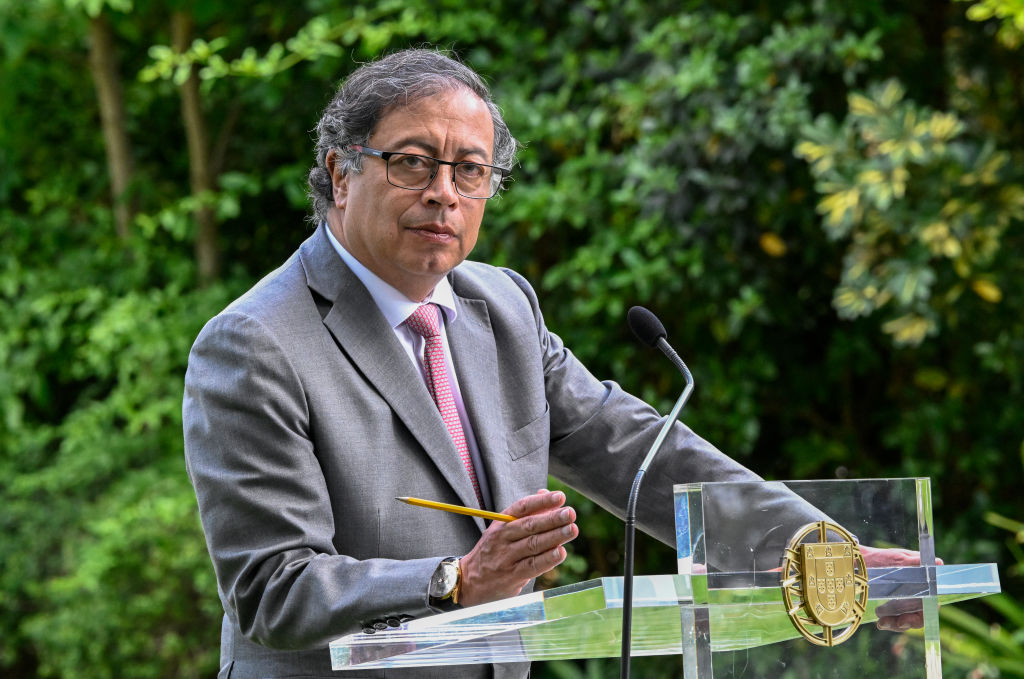In one of his first international speeches after taking office, Colombia’s President Gustavo Petro caught the attention of environmentalists and climate scientists alike by suggesting that oil is as bad for humanity as cocaine. During his campaign, Petro had already vowed to end Colombia’s dependence on oil and gas and pledged to put climate change and the energy transition at the top of his agenda.
In practice, in its first 10 months his administration seems only to be waging war against the fossil fuel industry. At the same time, the Petro government has yet to unveil an energy transition strategy that can help Colombia fulfill its pledge to become a net-zero emitter of greenhouse gasses by 2050.
The president seems to believe that the energy transition is as simple as suddenly breaking up fossil fuels. So far, Petro’s government has failed to explain what other sources of revenue could replace the industry, which generates 20% of the government’s income and constitutes close to half of all exports.
Minister of Mines and Energy Irene Vélez said in January at the World Economic Forum in Davos that the government would not award any new contracts for oil and gas exploration. The exploratory pilot fracking projects that were approved by Colombia’s highest administrative court have been paused indefinitely, while the government’s coalition in Congress is preparing to pass a bill that would completely ban the technique.
Like most developing countries, Colombia faces the difficult task of cutting emissions while simultaneously bringing about development. If it maintains its current growth trajectory, Colombia’s GDP is projected to triple by 2050. Yet to become a net-zero emitter by that same year, the country can increase its final energy demand by only 30%, according to estimates by the Regional Center for Energy Studies (CREE), an independent energy-policy think tank. This means the electricity sector will need to undergo a remarkable transformation in efficiency, striving to increase its low emissions generating capacity fivefold.
Renewables take time to develop and therefore cannot immediately start meeting the country’s electricity demands. To lower emissions in the meantime, the country can turn to natural gas as a transition energy source, says Tomás González, CREE’s director and a former minister of Mines and Energy. Emissions per unit of energy from natural gas are 40% lower compared to coal, which Colombia is using to power some energy plants, and also emits up to 20% less than oil, which is ubiquitous in the transport sector. According to González, Colombia’s energy transition strategy should include a gas production increase of 50% by 2040, and then shrink to around half of what it is today by 2050, when new renewables can take on a larger generating capacity.
The problem is that Colombia’s gas reserves are running at historic lows. A recent report by the National Agency of Hydrocarbons, a government agency tasked with managing the country’s hydrocarbon resources, says they will last a bit over seven years. To bring about gas’s potential as a transition fuel, Petro would have to renege on his minister’s pledge at Davos. Instead, Vélez has suggested importing gas from Venezuela in the event that reserves run dry. But Venezuela’s gas production capacity is barely enough to cover its internal demand, let alone Colombia’s.
Meanwhile, Petro has made it harder to develop new kinds of renewable energy. He has increased an energy sales tax for wind and solar projects from 1% to 6%, vowing to use the proceeds to benefit ethnic communities who live near the renewables’ sites. The tax reform Petro passed through congress last year has removed up to 75% of the benefits the previous government granted to solar and wind projects, according to the Colombian Association of Electric Energy Generators.
Under the Petro government, generating wind power in the northern region of La Guajira, which has wind speeds that are triple the global average, has become impossible. Petro’s predecessor, Iván Duque, auctioned nine wind power farms in that desert region in 2019. They were scheduled to start operating this year but have suffered indefinite delays due to lengthy consultation processes with ethnic communities residing along the path of the transmission line that needs to be built to connect the farms to the country’s electrical grid.
Although tensions surrounding these consultation processes were evident since 2021, they have intensified under Petro’s government. Communities are increasingly blocking the roads used to transport construction materials to La Guajira and the transmission line’s path. Their conditions for allowing wind power development in the region are getting more stringent, inflating the projects’ costs. Energy generation companies like ENEL, which has invested hundreds of thousands of dollars in building a wind power plant in La Guajira, are indefinitely pausing construction. The Petro government is in a unique position to mediate between the two parties, given its political affinity with Colombia’s ethnic communities. Yet it has failed to bring about a solution that could benefit both the communities and efforts to decarbonize.
Meanwhile, Petro keeps trying to sell his country as the promised land for renewables. In mid-June, Colombia’s president was in Germany promoting the country’s green hydrogen potential. But without the wind projects in La Guajira, the promise of green hydrogen in Colombia is greatly reduced.
With the current state of things, Colombia is more likely to renege on its climate commitments with the international community. That is a missed opportunity not only for Colombia, but also for all of Latin America. As the region’s most vocal proponent of ending the world’s dependence on fossil fuels, Petro has captured the attention of environmentalists around the world. Backing up those words with proof that he can spearhead a successful energy transition could catapult him into a prominent environmental leadership position that Latin America desperately needs. From such a position, Petro could also take advantage of Colombia’s status as the United States’ closest ally in the region to attract investment for the energy transition and for efforts to protect the Amazon rainforest. The energy transition was Petro’s biggest opportunity to outshine his regional counterparts on a global stage. If he doesn’t quickly change course, he will be the only one to have wrecked both his country’s energy transition and its finances.









